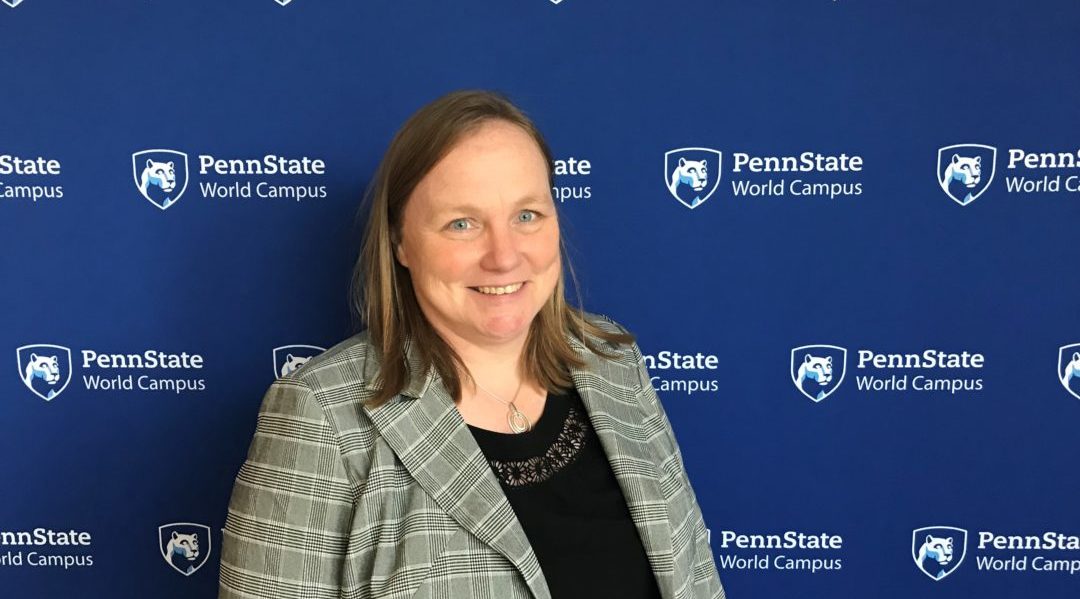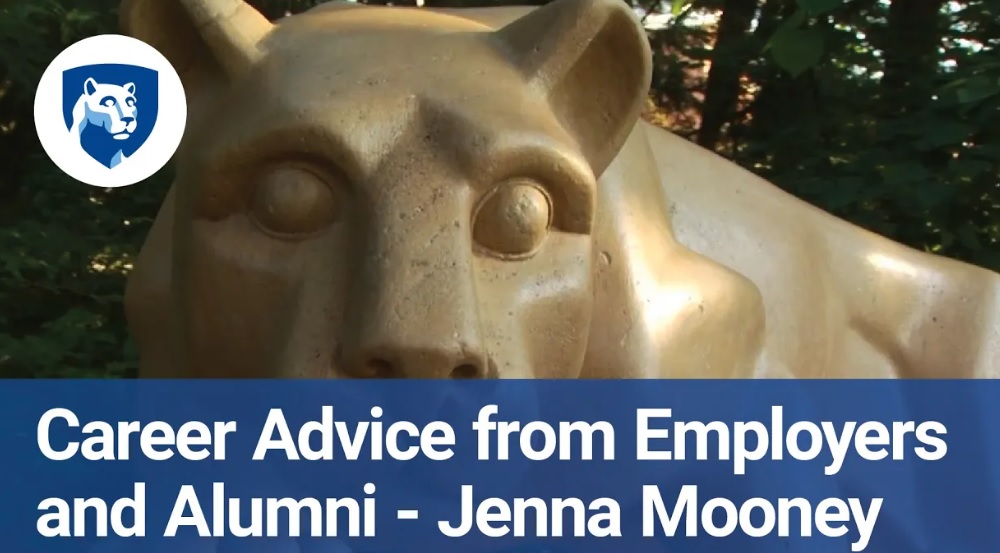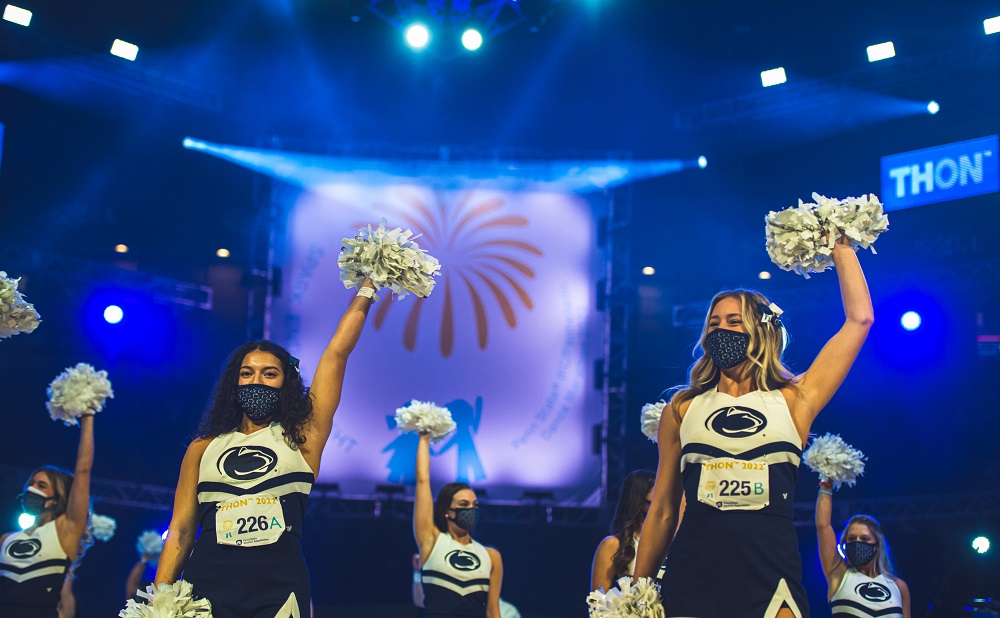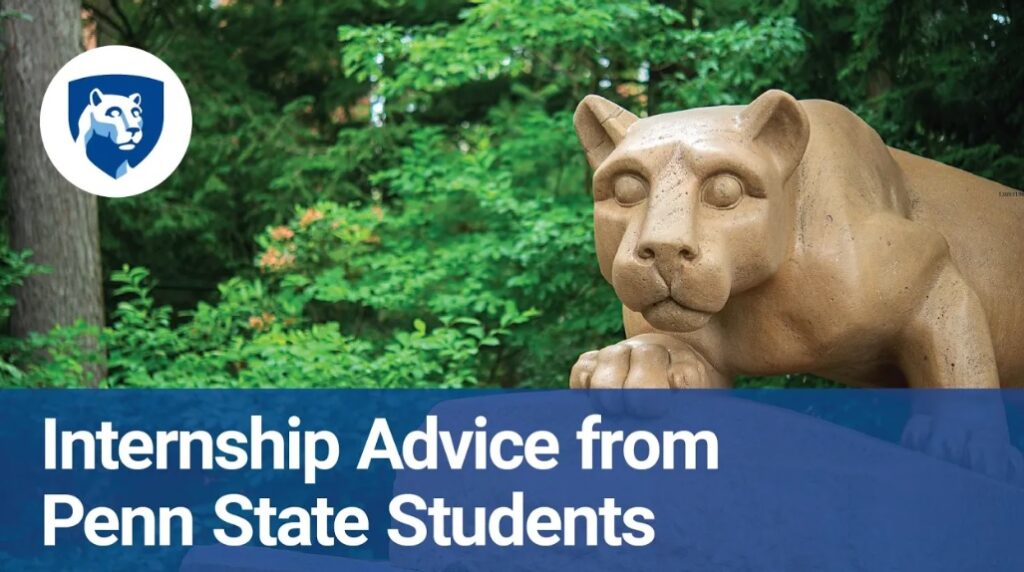
Do you know what a co-curricular program is? These out-of-class experiences help enhance your educational journey at Penn State World Campus — and Student Affairs now has a dedicated coordinator to help ensure that you can make the most of all that we have to offer. Learn about Julie’s role and why these types of experiences and programs are so valuable.
What was your background before you took on this role?
With a master’s degree in educational leadership, my career has largely been focused in higher education. I have served at several different colleges and universities with roles in student activities, leadership development, conference services, and student union management. Prior to moving into this role, I had the pleasure of serving in Penn State World Campus Student Affairs as the operations and programming assistant.
What does it mean to be a co-curricular program coordinator?
This is a role that I am very passionate about because I strongly believe in the value that out-of-class experiences provide to students. I see how co-curricular involvement influenced my own educational path and career. The connections that I made with faculty and staff as well as the leadership and organizational skills that I developed really helped to build a strong foundation for future success. I would like to see these same opportunities available to all Penn State World Campus students. Whether it be involvement in a club, participation in a faculty-led workshop, or engaging in service, each of these co-curricular opportunities offers students a chance to acquire skills and expand knowledge.
What are you looking forward to accomplishing in this role?
With the investments Penn State has made in expanding student engagement, I would like to see more students identify co-curricular experiences that align with their goals and further their learning. Some online students may believe these types of experiences are not possible for them. I hope this position will help to change that perception and continue to expand the opportunities available to our students. Ultimately, even though they are studying at a distance, Penn State World Campus students should still have the full, holistic university experience available to their peers studying in residence.
How can students get involved with co-curricular programs at Penn State World Campus?
Students can get involved in a variety of ways. They can read the student newsletter for announcements, check out the Get Involved tab on the student website, email or call our office, or even speak with a career counselor. Students should make it a priority to get involved in a program or activity. Involvement helps to ensure that students are getting the most out of their education. It’s also a great idea for students to think about co-curricular engagement early on in their educational journey. Perhaps they may seek to become involved in a club when they first become a student and then in subsequent semesters, they may want to become involved in a faculty research project, study abroad, service-learning opportunity, or internship. That said, it is never too late to get involved.
What value do students get out of co-curricular programs?
Co-curricular involvement helps students to forge greater connections with peers, faculty, staff, and the institution. It helps students to make friendships and develop a support network. In turn, through their involvement, students have the opportunity to apply knowledge from the classroom in practical real-world settings. In doing so, they expand their opportunities for growth and development.
How can participating in initiatives outside the classroom benefit students’ careers?
Students involved in co-curricular initiatives can demonstrate real world experience to potential employers. For example, a student leader of a virtual student organization will have greater opportunities to demonstrate the skills he or she developed around technology, organization, communication and leadership, etc. Research conducted by NACE (National Association of Colleges and Employers) has helped to identify a concept known as career readiness; these are skills and competencies that employers and universities have identified as vital to a student’s successful transition into career. In looking over the list of competencies, it is clear that co-curricular experiences provide ample opportunities to develop many of these critical skills including problem solving, teamwork, collaboration, communication, leadership, global fluency, and digital technology. In taking advantage of the learning opportunities that co-curricular initiatives offer, students should be able to set themselves up for success and distinguish themselves in a highly competitive job market.
What is your favorite part of working with students?
My favorite part is witnessing students working toward their goals. I am so inspired by student stories of persistence and dedication at Penn State World Campus. One of my favorite events each semester is the Graduation Celebration, where we meet students face to face, hear incredible stories of determination, and celebrate the students’ accomplishments. For me, it is also very exciting to hear about the wonderful things that former students are doing and the impact they are having within their communities.
Anything else you’d like to add?
Outside of work, I enjoy spending time with my family, which includes my husband, two sons, and 2 other children with 4 legs (a cat and dog). I grew up outside of Philadelphia, and know the extreme highs and lows that come with being an avid Philadelphia sports fan. However, as fans we are always optimistic that the next championship will be just around the corner.
If you would like to learn more about co-curricular programming, please email Penn State World Campus Student Affairs at studentaffairs@outreach.psu.edu.



